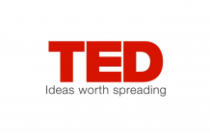Topic outline
-
Want to see this course on your My Home page?
ENROL YOURSELF IN THIS LISTENING COURSE AREA - CLICK HERE
If you do not access this course area for a long time, you may be unenrolled but you can easily re-enrol yourself - just click on the above link again.
There are many ways to practise your listening skills:
- resources in the LSU!
- radio station websites
- websites for language learners
- news, TV and films in English
- test practice (see the separate section on the main Independent Learning page)
- academic websites
STUDY TIP: Plan your study so you have a variety of types of listening. There are various resources in this Listening area. Please explore.
For Listening Exam practice, please look in the Practice Tests section (main page of Independent Learning).
-
- some good advice on how to develop your concentration
-
This site is designed to assist your English language skills by showing you where you can access free listening opportunities while learning about aspects of Sydney's heritage, government, culture and natural environment.
-
An interesting article with some great advice! Share your tips with your classmates!
-
AP Archive is the film and video archive of The Associated Press -- the world's largest and oldest news agency. The entire AP Archive collection is now viewable on YouTube. New material is added every day. You can also see the full collection at http://www.aparchive.com/Compilation
LOCATED IN THE ADVANCED/ACADEMIC LECTURES SECTION
-
Self-driving cars are already cruising the streets today. And while these cars will ultimately be safer and cleaner than their manual counterparts, they can’t completely avoid accidents altogether. How should the car be programmed if it encounters an unavoidable accident? Patrick Lin navigates the murky ethics of self-driving cars.
LOCATED IN THE TED SECTION
-
If you ask people whether they think stealing is wrong, most of them would answer yes. And yet, in 2013, organizations all over the world lost an estimated total of $3.7 trillion to fraud. Kelly Richmond Pope explains how the fraud triangle, (developed by criminologist Donald Cressey) can help us understand how seemingly good people can make unethical decisions in their daily lives.
LOCATED IN THE TED SECTION

